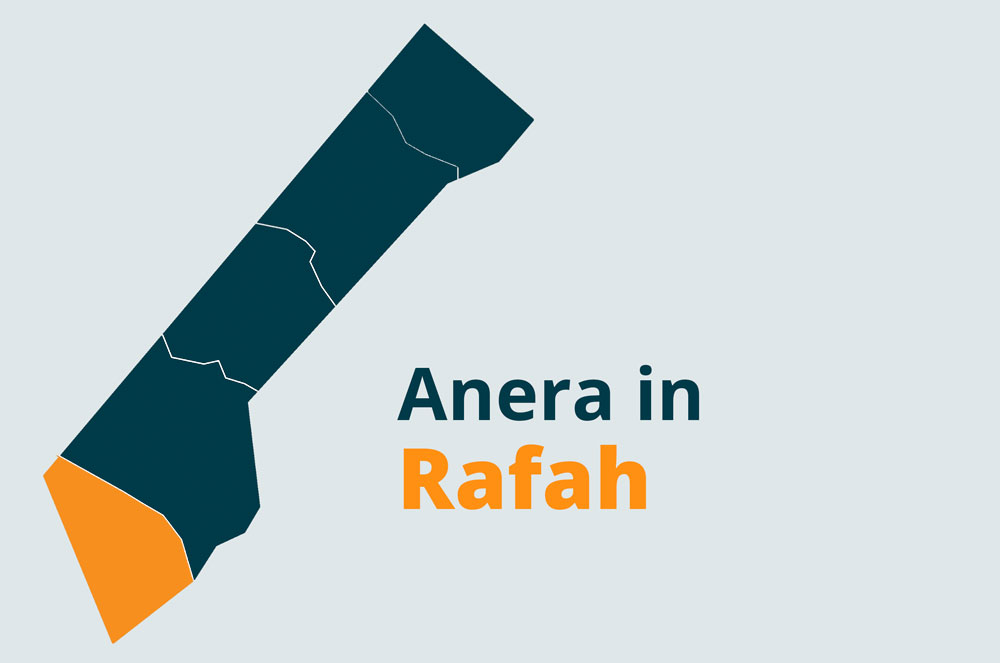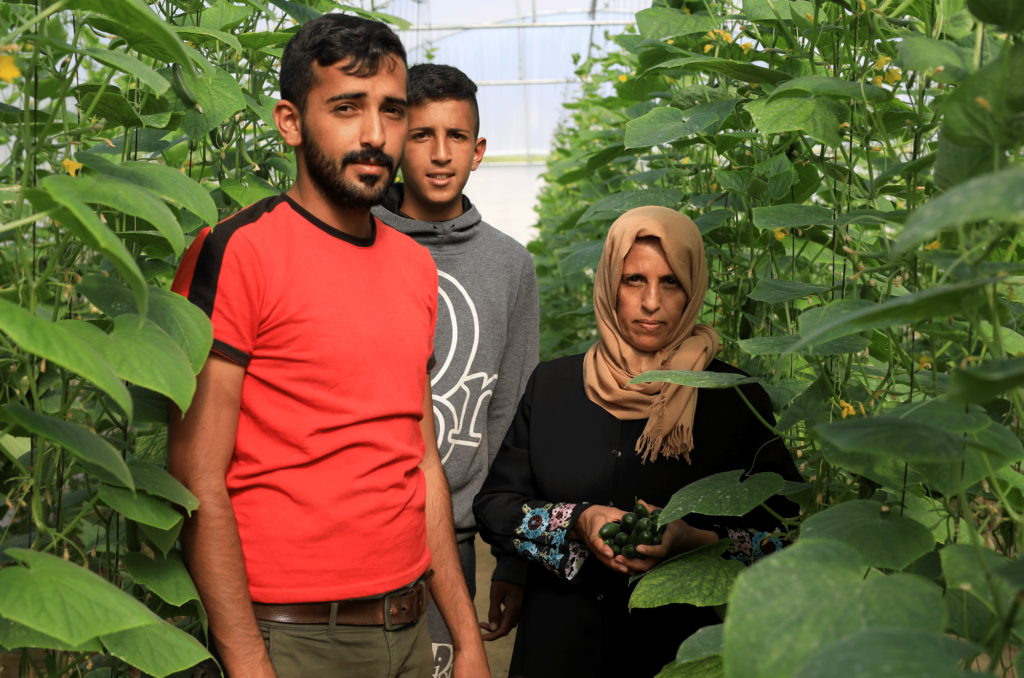Jun, 2011
A cloud of melancholy and sadness hangs over Al Nusirat in central Gaza, where narrow unpaved roads reflect the poverty of the families living there.
Just 20 kilometers from Gaza City, farming families in this agricultural community have found their source of income drying up because of restricted access to their fields and to farm essentials like seeds and tools.
Early in 2011, Anera began implementing the home gardens project that is helping 35 families in the region pool their expertise and benefit from vacant land to build their home gardens. The project provides a greenhouse, an irrigation system in addition to water tank, fertilizers and other farming materials.
Maher Abu Rikhiya is one of those beneficiaries. The father of seven is excited by the prospect of producing organic foods. Maher has cared for the seedlings he planted earlier, tending them as they grow and turn into delicious tasty fruits that are not readily available in the local market. His greenhouse, which Anera provided, stands in the backyard now filled with tomatoes, peppers, eggplants and melons. Maher says he is delighted with his work because for the first time what he produces belongs to him and his family.
Before the greenhouse project, Maher worked on rented land to earn his living. “Now I can provide basic vegetables that are used in cooking popular Gazan dishes and I can sell some of the crops in the local market. My 100 plants produce 20 to 30 kilos of tomatoes a week. I can sell a kilo of tomatoes for one shekel ($.30).”
For Maher, the greenhouse is more than a source of living. It is a special, aesthetic space where he can enjoy a memorable time with his family – a green space that he says can transport them to a different world outside of the misery that surrounds them. A nearby neighbor Hamda Saleem is a widow with two sons and a daughter studying sociology at the university. Haja Hamda has a small booth in the market where she sells what she grows in her greenhouse — arugula, mint and parsley. She says she is able to cover her daughter’s expenses like transportation and textbooks.
Hamda says the greenhouse has helped her regain her expertise in agriculture, which she learned working on farms when she was younger. Hamda says: “I am proud of cultivating all crops both seasonal and non-seasonal. I am very happy now because I cook fresh vegetables planted with my own hands,” she said.
When Hamda needs some vegetables that she hasn’t grown in her field, she exchanges what she has with other farmers. Maher and Hamda have changed the course of their lives through home gardening and through their determination and insistence to succeed in achieving their goals of providing safe, healthy food for their families.


